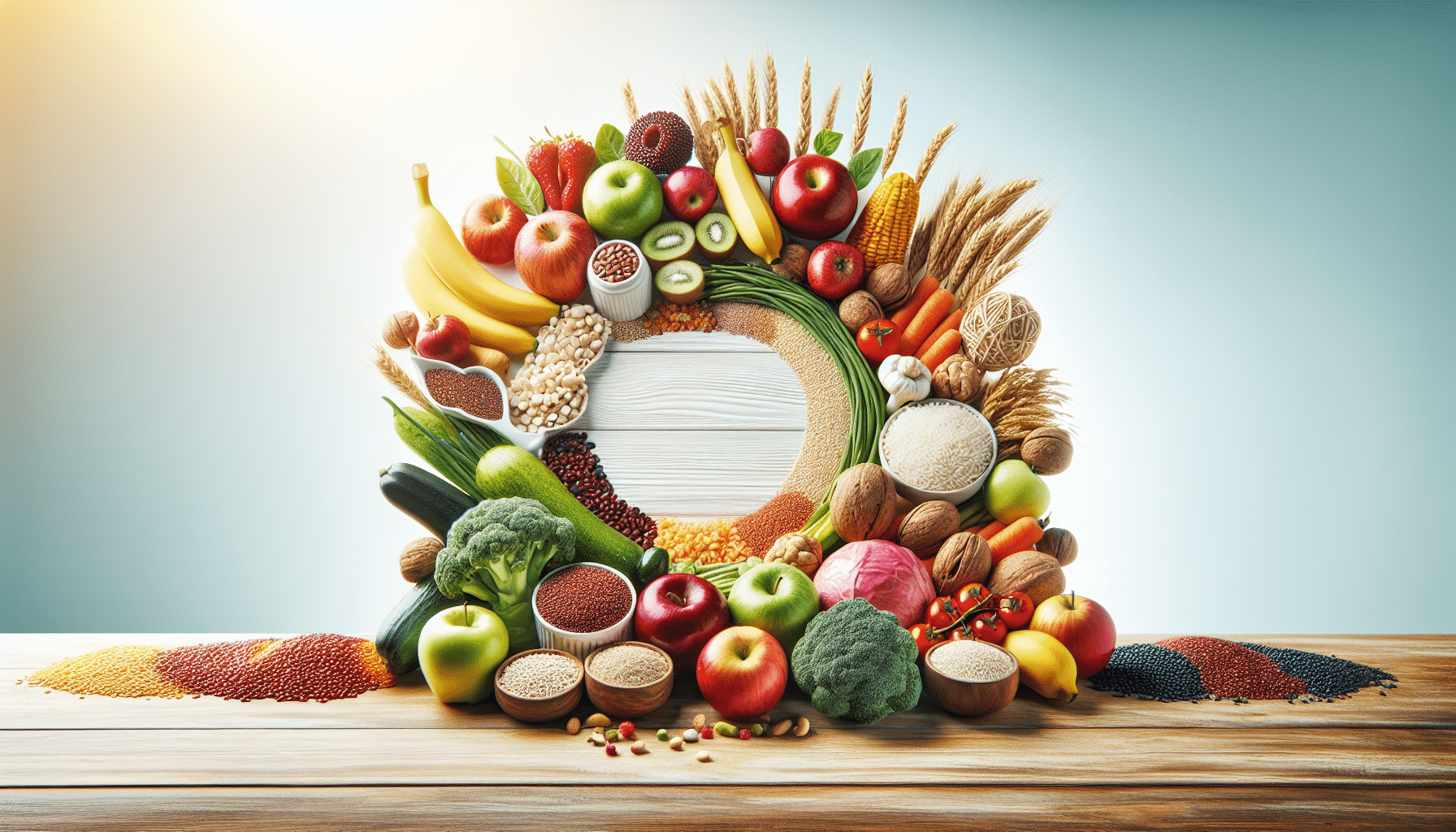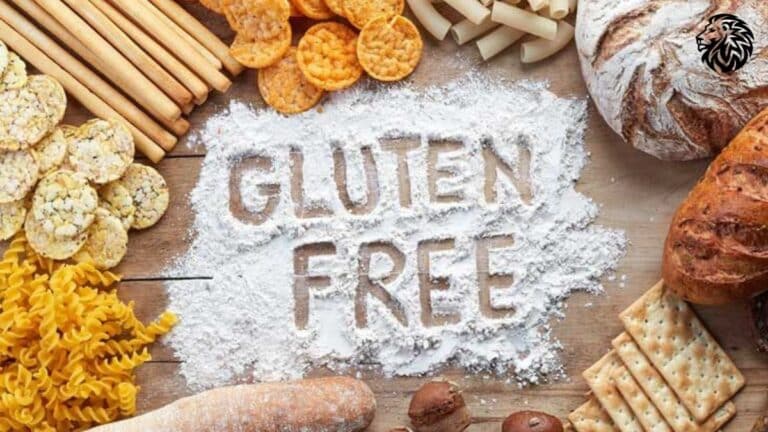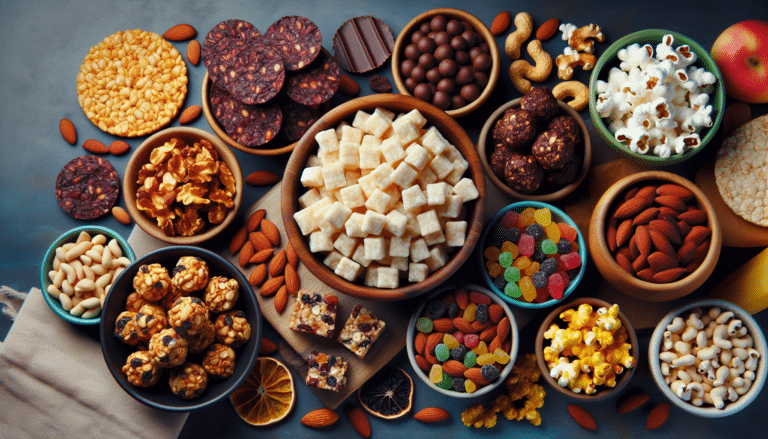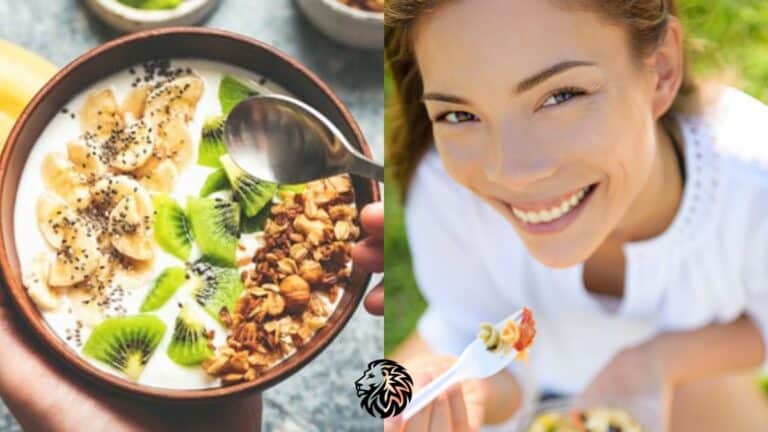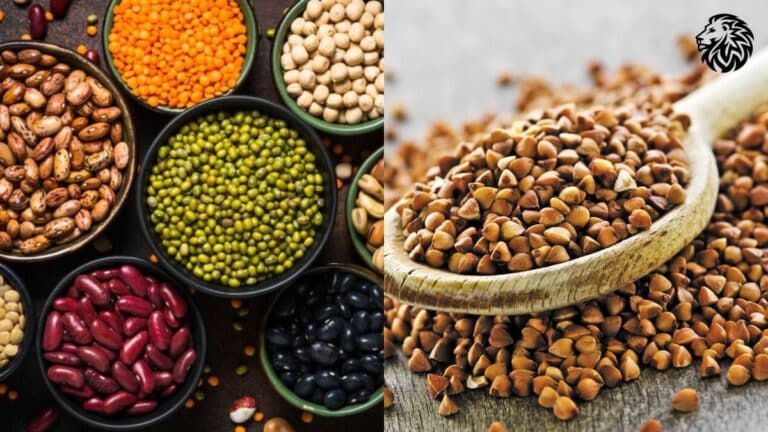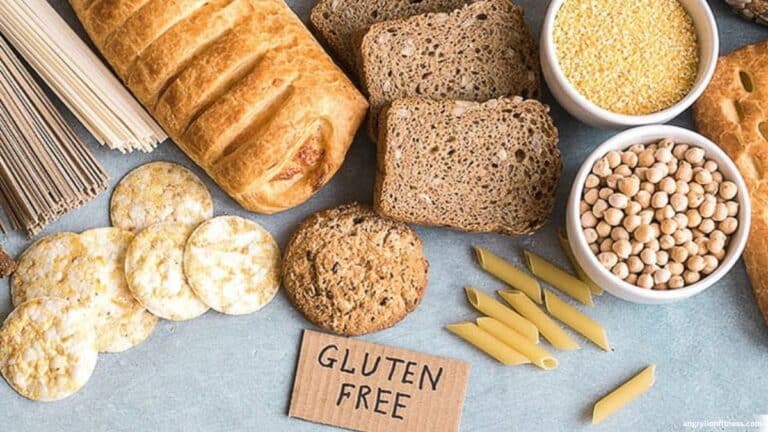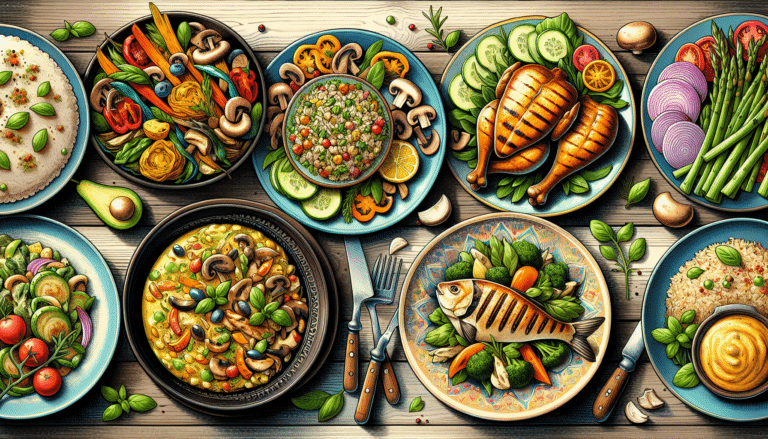Understanding Gluten-Free Diets
What’s the Deal with Gluten?
Gluten’s like the glue in your bread—it’s the protein in wheat, rye, and barley making dough stretchy and giving bread that lovely rise. For most folks, no harm done. But for some, it’s like unleashing the bad guy. If you’ve got celiac disease, you can’t even look at gluten without your immune system flipping out, attacking your small intestine’s lining and causing chaos for nutrient absorption. This can lead to a party of problems—diarrhea, bloating, and the potential for serious stuff like anemia.
Why Go Gluten-Free?
If gluten gives you grief, a gluten-free diet isn’t just nice—it’s necessary. Besides celiac disease, you’ve got things like Non-Celiac Gluten Sensitivity (NCGS) and wheat allergy playing the wicked stepsister role. NCGS mimics celiac’s horrible guest list of symptoms but skips out on the intestine drama. With wheat allergies, your body freaks out over wheat proteins, gluten being just one of them.
Going gluten-free can calm those riotous digestive issues—folks with celiac see fewer bouts of “emergency runs” and tummy turmoil when they ditch gluten (Healthline).
Then there’s the fitness crowd. Some go gluten-free thinking it’ll bring them health perks, help them trim down, or fuel their batteries longer. The jury’s still out on if it really works for everyone (Mayo Clinic).
But here’s the kicker—gluten’s a sneak, and it loves to hide where you least expect it. Always check those labels, folks. Avoid the usual suspects: bread, pasta, and cereals if they’re made from wheat, rye, or barley. Watch out for cross-contamination, too. Some gluten-free foods can get tainted during production (Medical News Today). For some surefire go-to’s, see our gluten free foods.
Jumping on the gluten-free bandwagon isn’t just about relief, it’s about better health too. Stay sharp about what you eat, whether you’re cooking at home, dining out, or loading up the cart at the store.
Here’s a handy table for swapping sneaky gluten foods with safe alternatives:
| Food | Gluten Trouble (Avoid) | Gluten-free Friends (Safe) |
|---|---|---|
| Bread | Wheat bread, Rye bread | Gluten-free bread (made with rice flour) |
| Pasta | Regular pasta (wheat) | Gluten-free pasta (made with corn, quinoa) |
| Snacks | Crackers, cookies | Gluten-free snacks |
| Baking | Wheat flour, Barley flour | Gluten-free flour |
Hungry for more gluten-free tips and tricks? Check out our gluten free recipes and gluten free meal plans to spice up your culinary adventures.
Who Should Consider Going Gluten-Free
Some folks really gotta steer clear of gluten to keep feeling their best. Figuring out if you’re one of them can help you stay on top of your game.
Celiac Disease
Celiac disease is no joke—it’s when your body throws a fit every time you eat gluten. That’s because your immune system goes rogue, mistaking gluten for the bad guy, and starts attacking your own gut, wrecking those little nutrient-sucking villi in your intestine (Harvard Health Publishing).
If you’ve got celiac, gluten needs to be as rare as a unicorn in your diet. Eating even a smidge more than 10 milligrams of gluten a day is just asking for trouble with symptoms like the runs, bellyaches, or just that all-around yuck feeling (Healthline). You gotta keep gluten intake super low, nearly non-existent.
Need tips on keeping celiac disease in check with what you eat? Swing by our celiac disease diet page.
Non-Celiac Gluten Sensitivity
Ever eat gluten and feel like you got hit by a truck, but you don’t have celiac or a wheat allergy? You might fall into the non-celiac gluten sensitivity (NCGS) camp. It’s more common than you think, affecting anywhere from a sliver to a baker’s dozen percent of folks out there (Healthline).
For those with NCGS, cutting gluten can ease bloating, the dreaded brain fog, and those nagging headaches. This might be your new normal, or you could find some wiggle room later on—just keep an eye on how you feel and adjust accordingly (Mayo Clinic).
Cruise over to our gluten free recipes page for some tasty ideas.
Wheat Allergy
A wheat allergy doesn’t like to share the spotlight with celiac—it’s a whole different ballgame. Your body creates antibodies that wig out when they sense wheat proteins, causing allergic reactions that hit like a ton of bricks.
Steer clear of wheat, but you might not need to swear off every gluten-containing grain under the sun. Symptoms can give you anything from a sniffly nose and itchy skin to tummy troubles that’ll make you wish you’d stayed in bed.
Find handy alternatives and tips in our guide on gluten free foods.
| Condition | Gluten Game Plan | Symptoms |
|---|---|---|
| Celiac Disease | Less than 10 mg/day, fewer than 20 ppm | Runs, tummy troubles, indigestion |
| Non-Celiac Gluten Sensitivity | Ditch gluten as needed | Bloating, drained energy, pounding head |
| Wheat Allergy | Dodge wheat like your life depends on it | Skin flares, breathing issues, gut grumbles |
Going gluten-free isn’t just a fad—it can really boost life quality for those wrestling with these conditions. For meal ideas that won’t leave you in a gluten gaffe, check out our gluten free meal plans page.
Benefits of a Gluten-Free Diet
Going gluten-free isn’t just a trend—it can actually work wonders for your health! Whether you’re juggling celiac disease, dealing with non-celiac gluten sensitivity (NCGS), or just curious about the perks, dodging gluten could be your golden ticket to feeling better.
Bye-Bye, Tummy Troubles
For folks battling celiac disease or NCGS, saying adios to gluten can turn down the volume on annoying tummy issues: we’re talking less diarrhea, fewer indigestion bouts, and a calmer stomach. Studies back this up for those sticking to a gluten-free routine; they often feel a whole lot better (Healthline).
| Symptom | With Gluten-Free Diet | Without Gluten-Free Diet |
|---|---|---|
| Diarrhea | Reduced | Increased |
| Indigestion | Reduced | Increased |
| Stomach Pain | Reduced | Increased |
So, ditching gluten can guide you to digestive bliss and a healthier gut if gluten tends to wreak havoc on your system. Need meal inspiration? Peek at our gluten free meal plans.
A Boost in Energy and Health
Even if gluten isn’t a direct foe, many folks feel like a rockstar without it. More pep in their step and just overall oomph comes from cutting gluten out. It might be because going gluten-free steers you away from munching on processed snacks loaded with bad fats and carbs. Instead, it nudges you towards wholesome foods.
| Health Aspect | Potential Benefit |
|---|---|
| Energy Levels | Increased |
| Overall Health | Improved |
| Digestion | Enhanced |
Soaring energy and better health might make that gluten-free journey worth the trip. Our gluten free recipes are just the thing to keep you fueled and fit.
Shedding the Pounds
Dropping those extra pounds can also be part of the gluten-free charm. Say goodbye to processed munchies and refined carbs, and hello to your potential beach bod! But heads up—balance is key. Combine your diet with smart portion choices and regular movement for the best outcomes.
| Factor | Contribution to Weight Loss |
|---|---|
| Processed Foods Elimination | High |
| Refined Carbs Reduction | High |
| Portion Control | Essential |
| Regular Exercise | Essential |
| Whole Foods Consumption | High |
While gluten-free can be a fantastic tool for managing weight, make sure you’re eating balanced meals and staying active. Our gluten free lunch recipes can help you stay on track and love what you eat.
All in all, understanding what a gluten-free diet can do for you means making smarter choices for your health. Whether you’re dodging symptoms, boosting energy, or aiming for weight loss, looking into a gluten-free lifestyle could be a game changer!
Implementing a Gluten-Free Diet
Foods to Dodge
Alright, if gluten gives you a bad day, knowing what to skip is key. This pesky gluten stuff loves to hang out in wheat, barley, and rye. Anyone with celiac or those just gluten-averse should be giving these guys the cold shoulder. Here’s a quick lineup of usual suspects hiding gluten:
- Bread and Pastries: Your everyday breads, cakes, cookies, and pastries.
- Pasta: Those classic pastas, noodles, and dumplings.
- Baked Delights: Muffins, pies, and bagels.
- Grains: Wheat, barley, rye, bulgur, and spelt.
- Booze: Some beers and malt-based beverages.
- Processed Foodies: Dressings, sauces, soups, and some quick-grab foods (Healthline).
Folks with celiac need to watch for cross-contamination like a hawk—some supposedly safe foods become risky during processing. Want a longer list? Check our guide on gluten free foods.
Safe Gluten-Free Stand-ins
No worries, you can still chow down on some tasty stuff while dodging gluten. Here’s the deal:
- Grains and Starches: Corn, rice, quinoa, buckwheat, and gluten-free oats.
- Flours: Almond, coconut, and rice flours.
- Proteins From the Animal Kingdom: Fish, chicken, and beef are naturally gluten-free. Sneaky flavorings? Give ’em a second look.
- Dairy Goods: Milk, cheese, yogurt—but peek at the labels to dodge hidden gluten traps.
Here’s a handy swap chart:
| Grain/Ingredient | Gluten-Free Swap |
|---|---|
| Wheat Flour | Almond Flour |
| Barley | Quinoa |
| Rye | Buckwheat |
| Semolina | Rice Flour |
Wanna dive deeper? Peek at our pieces on gluten free recipes, gluten free baking, and gluten free dinner recipes.
Cracking the Food Label Code
Mastering label reading is your new superpower in this gluten-free gig. Here’s the plan:
- Scout for the certified gluten-free mark. These goodies have been checked out and stamped safe.
- Dodge anything shouting wheat, barley, rye, malt, brewer’s yeast, and oats (unless they wear the gluten-free badge).
- Mind those sneaky additives and preservatives—they sometimes pack gluten.
Here’s your gluten-smart checklist:
- Check Ingredients: Make sure nothing dodgy sneaks in.
- Look for Allergens: Keep an eye out for wheat or gluten mentions.
- Gluten-Free Certification: Choose certified picks when possible.
Figuring out what to skip, finding gluten-free goodies, and getting label-savvy arms you to rock a gluten-free life. If you need more tips, check out our in-depth celiac disease diet guide.
Potential Challenges of a Gluten-Free Diet
Nutritional Deficiencies
Going gluten-free can be trickier than solving a Rubik’s Cube blindfolded when it comes to keeping your nutrition game strong. Those whole grains you cut out are like little treasure chests packed with fiber, B vitamins, iron, and magnesium. Skipping them means you’ll need to find alternative ways to keep that healthy balance.
| Nutrient | Gluten-Containing Foods | Gluten-Free Alternatives |
|---|---|---|
| Fiber | Whole-wheat bread | Quinoa, brown rice |
| B Vitamins | Fortified cereals | Leafy greens, beans |
| Iron | Barley, enriched wheat flour | Pumpkin seeds, lentils |
| Magnesium | Wheat bran, barley | Almonds, dark chocolate |
| Calcium | Fortified breads and cereals | Leafy greens, fortified gluten-free bread |
Heads-up: gluten-free goodies sometimes swap in fats and sugars, waving goodbye to those all-important nutrients you need (Mayo Clinic). It’s like trading a gold coin for a chocolate coin — tasty, but not what you want in your bank. Prowling grocery aisles with a keen eye on labels helps ensure you’re grabbing grub that’s both tasty and nutritional.
Social Implications
Let’s face it, being the odd one out at a dinner party can feel more awkward than showing up in a fancy hat nobody else is wearing. Following a gluten-free diet might put a big sticker on that awkwardness when it comes to dining out, family pow-wows, or friendly get-togethers. Gluten-free options in the social sphere are sometimes a rare breed.
The trick here? Get chummy with your crowd about what works for your belly. A chat or two and a little sniffing out of gluten-safe eateries can do wonders. Our trusty gluten-free meal plans have got your back, offering ideas for your next social binge.
Cost Considerations
Ponder this: gluten-free foods can have the price tag of a designer handbag, but you still end up with groceries. That’s the cold, hard truth — they hit the wallet harder than their gluten-y cousins.
| Product | Average Cost ($) Gluten-Free | Average Cost ($) Gluten-Containing |
|---|---|---|
| Bread (per loaf) | 5.00 | 2.50 |
| Pasta (per pound) | 4.00 | 1.20 |
| Snack bars (per box) | 6.00 | 3.00 |
Don’t blow your budget. Opt for nature’s pantry of fruits, veggies, and meats that naturally shun gluten. Home-cooked meals using our gluten-free recipes could be your thrifty best bud. Stock up on the basics, and you’ll find your wallet thanking you in the long haul.
Steering through these hurdles with some savvy strategies will let you relish the positives of a gluten-free diet without letting your health or well-being slip out of sight.
Gluten-Free Diet Considerations
Dodging Cross-Contamination
If you’re sticking to a gluten-free diet, you gotta keep an eye on cross-contamination. It’s what happens when food meant to be gluten-free mingles with gluten during the hustle and bustle of cooking or processing. For folks with celiac disease, even a smidge of gluten can kick off symptoms (Medical News Today).
To steer clear of this nasty mix-up, keep these tips in mind:
- Keep utensils, cutting boards, and pots just for gluten-free stuff.
- Give your gluten-free foods their own space.
- Scrub down surfaces before you start cooking.
Think about setting up a special gluten-free zone in your kitchen. Label those containers and make sure everything’s sealed tight, so there’s no gluten sneaking in where it shouldn’t be.
Hidden Gluten in Non-Food Items
A lotta times, gluten lurks in stuff you’d never guess. It’s in plenty of products you use every day, and it doesn’t always scream ‘gluten!’ on the label. Watch out for:
- Medications and supplements: Sometimes they’re glued together with gluten.
- Personal care stuff: Your shampoo or lotion could be keeping secrets.
- Cosmetics: Lipsticks and lip balms might have a little gluten love affair going on.
Be label-savvy and don’t hesitate to hit up manufacturers or your pharmacist when something feels off. Always go for products that spell it out — gluten-free.
When You Gotta Test Gluten
Sometimes, your doc might suggest bringing gluten back into your diet for a test, especially if there’s a hint you might have non-celiac gluten sensitivity (NCGS). It’s a job for healthcare pros!
Here’s the drill: Ditch all gluten first. Once symptoms hit the road, you reintroduce it, bit by bit, while keeping tabs on any symptoms. Writing down what you eat and how it makes you feel can be super helpful (Healthline).
When you’re reintroducing gluten, ease into it:
- Start with baby amounts.
- Up the dose gradually.
- Keep an eye out and jot down any changes.
For more solid tips on rocking a gluten-free diet and dodging cross-contamination, take a look at our guides on safe gluten-free foods, gluten-free snacks, and gluten-free baking.
By watching out for these things and being savvy about cross-contamination and hidden gluten, you can hold it down on a gluten-free diet and keep your health in check. If meal planning’s your jam, don’t miss our gluten-free meal plans and gluten-free recipes.
